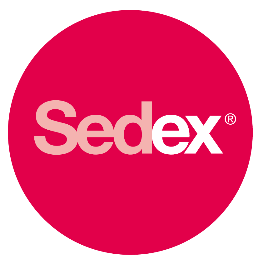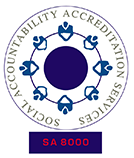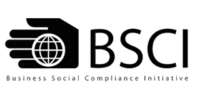Our projects
SEDEX
SEDEX-
The Supplier Ethical Data Exchange or Sedex for short, is a globally renowned online platform that allows members to provide customers and partners with detailed information about their social and ethical performance. The aim is to ensure greater transparency across the entire supply chain. Through its online data base, Sedex shares ethical supply chain data so that brands and retailers can see their supplier are meeting their social and ethical responsibilities.
All audits are performed by qualified, accredited and experienced auditors working to SMETA.
This methodology covers areas such as labor standards, health & safety, and environmental management. The SMETA catalog includes a compilation of good practices which have proven to be effective auditing techniques in the field of corporate social responsibility.
We are your reliable partner for the implementation of Sedex audits based on the principles of SMETA.
Steps to your Sedex audit-
Submit a self-evaluation form
All applicants are required to complete a self-evaluation form before we begin with the Sedex audit. Forms are filled out by the sites to be audited.Conduct a Sedex audit on site
Our auditors visit the sites to be audited. An auditing team assesses the extent to which your social management documentation meets the SMETA criteria. The duration of any given audit depends on the number of employees and locations.Issue a report and CAPR
Once the Sedex audit is done, our auditors create a corrective action plan for you along with a detailed audit report (SMETA Report & CAPR), which you can now upload to the Sedex database.
SEDEX’s core product is sedex advance, a secure, online database which allows member to store, share and report on information in four key areas:
Labour Standards
Health & Safety
Environment
Business Ethics
To learn more about your SMETA audit, arrange a free consultation with one of our experts!


SA 8000
SA-8000 is an auditable certification standard that encourages organizations to develop, maintain, and apply socially acceptable practices in the workplace. It was developed in 1997 by Social Accountability International, formerly the Council on Economic Priorities, by an advisory board consisting of trade unions, NGOs, civil society organizations and companies. The SA-8000 streamlines the complexities of navigating industry and corporate codes to create a common language and standard for measuring social compliance. As it can be applied worldwide to any company in any industry, it is an extremely useful tool in measuring, comparing, and verifying social accountability in the workplace.
CERTIFICATION PROCESS
SA8000 certification is used in both private and public sectors to increase confidence in a company’s working conditions and as a tool to implement international labor standards. SA8000 guides employers to consider the importance of each job and to recognize the equal dignity of each person involved in the supply chain.
SA8000 defines the requirements for an organization’s quality management system, not for its products. Accredited certification to SA8000 provides confidence in the organization’s ability to meet the requirements in the Standard. It does not necessarily ensure that the organization will always achieve 100% conformity though this is a permanent goal.
STANDARD
Child Labour
Forced or Compulsory labour
Health and safety
Freedom of association & right to collective bargaining
Discrimination
Disciplinary Practices
Working Hours
Remuneration
Management System Such as: Policies, procedures, complaint management, training, capacity building, management of supplies and contractors.


amfori BSCI Supplier Audits
Today, Business Looking to ensure responsible sourcing and build ethical supply chains are offered a variety of social auditing frameworks. amfori BSCI (Business Social Compliance Initiative) is one of the fundamental protocols for social audits chosen by companies worldwide. As an approved provider of amfori BSCI audits, We offers comprehensive audit programs to manufacturers, brands and retailers. Our qualified auditors will verify the


compliance of your supplier’s facilities with all requirements of the amfori BSCI Code of Conduct, including such aspects as:
Working hours and fair compensation
Child labor and protections for younger workers
Forced/bonded labor and precarious employment
Freedom of association and collective bargaining
Discrimination


Address
Mkt. Off.:- C-84 (S-07), Sector-2 Noida-201301, Delhi-NCR (India)
Contacts
+91- 9811538355
info@relliostellar.com
Enquiry
